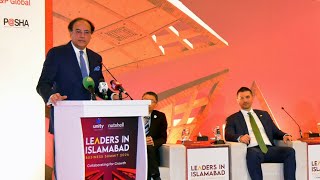 CARACAS: Hugo Chavez's top aides have gone on the offensive, accusing the opposition and media of waging a "psychological war," as Venezuela's cancer-stricken president battles a serious lung infection.
CARACAS: Hugo Chavez's top aides have gone on the offensive, accusing the opposition and media of waging a "psychological war," as Venezuela's cancer-stricken president battles a serious lung infection.
The closing of ranks followed a high-level gathering of top Venezuelan officials in Havana with Chavez, amid growing demands to know whether he will be fit on January 10 to take the oath of office for another six-year-term.
Information Minister Ernesto Villegas said late Thursday that a "severe pulmonary infection" that Chavez developed after his fourth round of cancer surgery nearly a month ago had led to a "respiratory insufficiency."
Villegas then alleged the president's health had become the target of a campaign to destabilize the government and reverse its socialist revolution.
In a televised statement, Villegas warned "the Venezuelan people about the psychological war that the transnational media complex has unleashed around the health of the chief of state, with the ultimate goal of destabilizing the Bolivarian Republic of Venezuela."
Venezuela's constitution calls for new elections to be held within 30 days if the president is unable to take the oath of office or dies during his first four years in office.
But Vice President Nicolas Maduro and National Assembly speaker Diosdado Cabello, the regime's number two and three leaders, made clear on their return from Cuba that they were not preparing for a transfer of power from Chavez.
"Here there is only one transition and it began at least six years ago and it was decreed by comandante Hugo Chavez," Maduro said, referring to the launch in 2006 of the president's socialist revolution.
In a television appearance, both men went out of their way to deny rumors of an internal power struggle between them, with Maduro saying they had sworn before Chavez that they would remain united.
Cabello is expected to keep his speaker's post when the National Assembly votes Saturday on leadership positions in a new parliament, but if he does not it could be a sign of divisions within the Chavista camp.
"We are here more united than ever," said Maduro, who is Chavez's handpicked successor. "And we have sworn before comandante Hugo Chavez, and we reaffirmed to him today in our oath ... that we would be united with our people."
Maduro attacked a report in the Spanish newspaper ABC alleging a power struggle between the two, and accused the opposition of "lies and manipulation, a campaign to try to create uncertainty."
"We know that the United States is where these manipulations are being managed," he said. "They think that their time has come. And we have entered a kind of crazy hour of offensive by the right, here and internationally."
It was unclear whether Maduro was referring to US-based Venezuelans or the US government.
In Washington on Thursday, State Department spokeswoman Victoria Nuland denied that US officials were meddling in Venezuelan affairs, but acknowledged there had been contact with Venezuelans "from across the political spectrum."
"There's no 'made-in-America' solution here. This has to be something that Venezuelans have to do," Nuland said.
Cabello has said that the president's swearing-in could be delayed if he is not able to take the oath on January 10, but there are differences over whether Chavez's current term could be constitutionally extended during the interim.
A leading opposition leader, Henrique Capriles, who was defeated by Chavez in October's presidential election, has indicated that he would be willing to accept a delay.
Capriles, former governor of the state of Miranda, is seen as a possible challenger to whomever wears the presidential sash at the next election.
Chavez was re-elected October 7 despite his debilitating battle with cancer and the strongest opposition challenge yet to his 14-year rule in Venezuela, an OPEC member with the world's largest proven oil reserves.
But he has not been seen in public since he underwent a long and complicated surgery for a recurrence of cancer in Cuba on December 11, and officials have acknowledged that his recovery has been difficult.
The rector of the Central University of Venezuela, Cecilia Garcia Arocha, proposed sending a team of medical experts to Havana to assess his condition. Opposition leader Antonio Ledezma said it should include opposition figures.
Cancer was first detected by Cuban doctors in June 2011, but the Venezuelan government has never revealed what form of the disease he is battling.
Medical experts say infections are common and often fatal outcomes in cancer cases because chemotherapy treatments for the disease involve suppressing the victim's immune system, leaving the patient vulnerable.
"Up to 50 percent of deaths of patients affected by solid tumors are provoked directly or indirectly by infections," Doctor Thierry Berghmans of the Jules Bordet Institute hospital in Brussels, in a report.
A 1990 study in the European Journal of Cancer found that "major infections" resulted directly or indirectly in 24 percent of deaths of cancer patients in intensive care units.























Comments
Comments are closed.